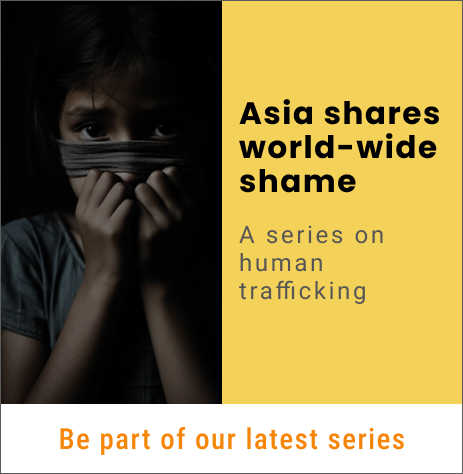Global rights groups Amnesty International and Human Rights Watch have strongly criticized Thai authorities for failing to find truth and deliver justice for leading human rights lawyer Somchai Neelapaijit who became a victim of enforced disappearance 20 years ago.
“Over the past two decades, the Thai authorities have utterly failed to provide justice, truth or reparation to Somchai and his family,” Amnesty International’s Regional Researcher for Thailand Chanatip Tatiyakaroonwong said in a March 11 statement.
Chanatip said, a day before the 20th anniversary of Somchai’s disappearance, that his case and many others involving enforced disappearances highlight “an entrenched culture of impunity in a country that is now trying to join the UN Human Rights Council.”

If Thailand wants to join as a respected member, it must meet many more of its obligations under international human rights law, such as ratifying, without any reservations, the International Convention for the Protection of All Persons from Enforced Disappearance, he stressed.
Chanatip said despite Thailand enacting a domestic law criminalizing enforced disappearance more than a year ago, only a few cases are reaching the country, making the law just paperwork.
Somchai Neelapaijit disappeared in the Ramkhamhaeng area of Bangkok on March 12, 2004. He has not been heard or seen ever since while mysteries surrounded the case.
Five police officers were arrested shortly afterward for allegedly coercing him into their car but were acquitted by the Supreme Court in December 2015.
In 2006, Pol Maj Ngern Thongsuk of the Crime Suppression Division of police was sentenced to three years in jail for his connection with Somchai’s disappearance.
He later disappeared and his family testified that he died in a landslide accident, prompting the court to declare him a missing person.
Before his disappearance, Somchai was representing five Muslims charged with a raid of a military camp in Narathiwat, one of the three predominantly Muslim provinces in southern Thailand troubled by a long-running Muslim insurgency.
Somchai, a Muslim, strongly criticized the imposition of Martial Law in the provinces in January 2004, which gave the authorities sweeping powers to detain people for seven days in military custody without charge.
He has been well known for advocating for the rights of Malay Muslims, including individuals who were subject to torture and other ill-treatment in military detention in southern border provinces.
Somchai’s wife, Angkhana Neelapaijit, continues to raise the issue of enforced disappearances as a human rights defender, Amnesty said.
She is a current member of the UN Working Group on Enforced Disappearance and has previously held a role as national human rights commissioner.
Her activism has been met with threats of violence, both online and offline, Amnesty said.
Despite her situation, Angkhana’s witness protection program was paused by the Criminal Court in October 2022 due to the court case on Somchai’s disappearance having concluded a long time ago.
Credit: Source link




